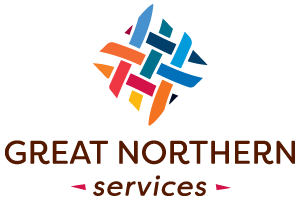Good news for people who care about people and community…
Commodities Distribution Down River: Volunteers Make the Difference
Great Northern Services is designated by the State of California and the Siskiyou County Board of Supervisors to distribute USDA Commodities and emergency food in our area. These distributions of shelf-stable staples are a way for low-income households to supplement their diet, perhaps freeing up some funds for other expenses such as fresh vegetables, bills, etc.
GNS coordinates five different distribution routes, and volunteers pick-up, distribute, and make sure residents all over Siskiyou County can access this vital service—from McCloud, to Tulelake, to Cecilville, if people need the food there’s a way for them to get it. GNS Marketing Assistant Nichole McCown recently went along on the Down River Route and brought back photos, stories, and preparation suggestions.
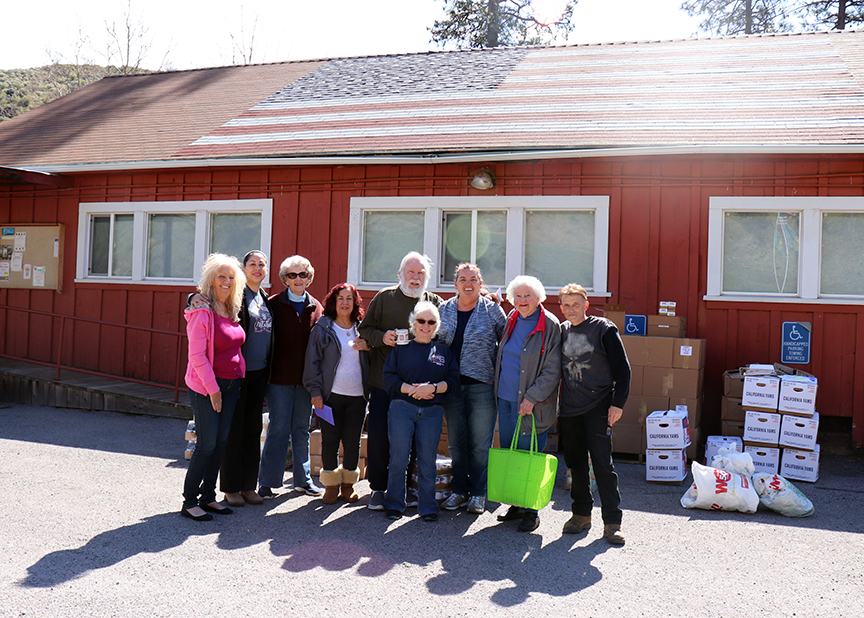
Every stop on the Down River route has its own flavor but they’re united by an intense sense of commitment to their communities. Our first distribution drop off was at the Klamath River Community Hall where an appreciative and lively group unloaded the pallets and organized the items—led by Debbie but focused on community helping community, the group made quick work of the heavy load while swapping stories, prep suggestions, and turning the event into a festive occasion.
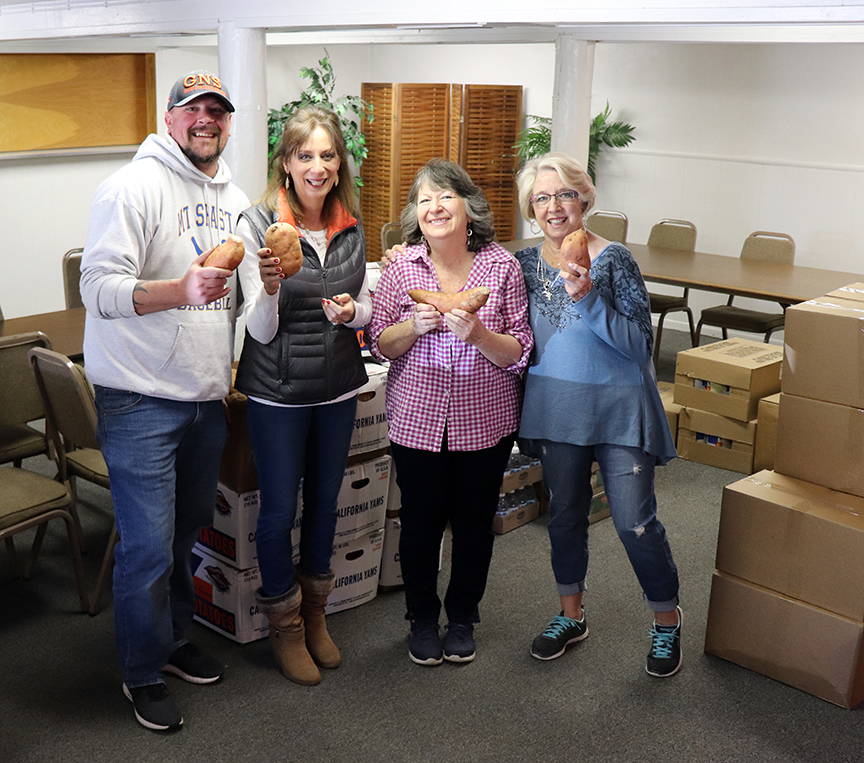
The next distribution we visited was organized out of the ground floor of the Horse Creek Community Church by Jeanne Oldfield who has been volunteering in this fashion for the last 4 years. “I have seen the families I serve go from 28 to 40 in that short time,” says Oldfield “The staff at GNS goes above and beyond to make sure the people in our community are well feed and provided with commodities and treated with dignity and respect.” Oldfield and her helpers organize bags for families from Horse Creek, Hamburg, and Scott Bar communities, and serve a population that is shifting towards older ages. Oldfield reports less and less young families are staying in the area, a demographic change that affects the distribution but doesn’t dampen the excitement. “Our group exchanges recipe ideas and fun tips on all the wonderful food we receive,” she says.
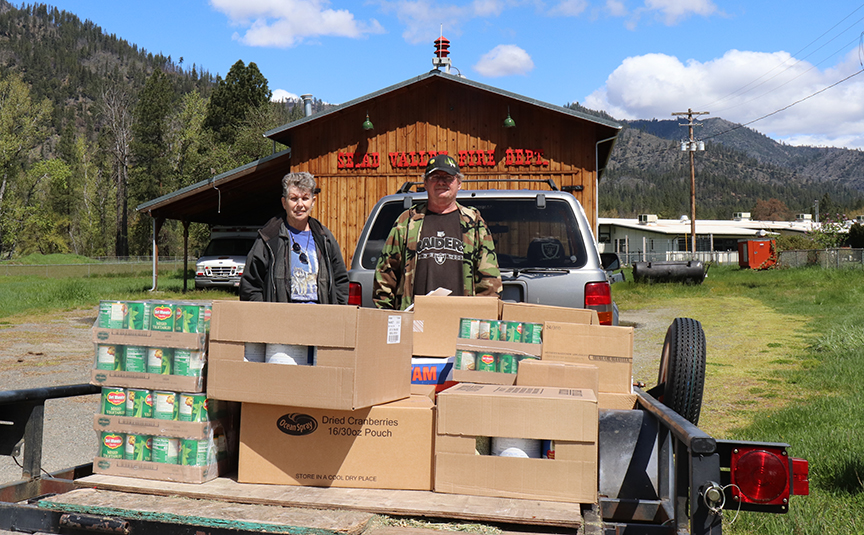
Seiad Valley is the smallest stop on the route, and GNS Driver Tyler Moser unloads their items in record time. Ron & Sandy store the items they have volunteered to shepherd on a trailer, so they can keep them in the shade as they wait for the 25 – 30 households that pick up from them to arrive. “Everybody knows everybody in our community,” says Ron, “Most people come and go. Sometimes they come, and sometimes they go.” When asked why he volunteers he says he does it to make sure it gets done right. “Help the people, that’s all I know.”
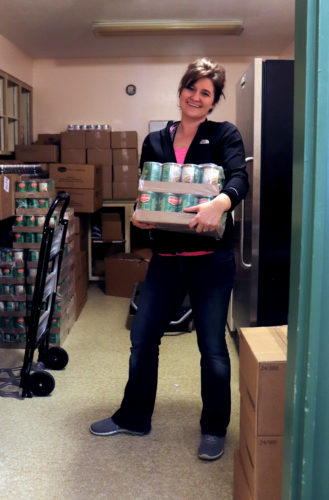
The final stop on the route is at the Happy Camp Community Center where executive director Abby Yeager has received a special grant to allow their organization to distribute commodities monthly. The grant also enables the center to include fresh vegetables from local sources. The Resource Center serves as the pick-up spot for the volunteers who deliver commodities even further down the river reaching all the way to Somes Bar, Forks of Salmon, and Cecilville. This means they’re packing a lot of food into their storage spaces and making a big difference for a whole lot of families.
Everyone along the route showed so much determination and enthusiasm for helping their community. “It really is the volunteers at these sites that make the program work. We’re extremely grateful they step forward to take on the responsibility, organize the extra help, and keep the community informed,” says Heather Solus, GNS Community Services Director, “Without them we wouldn’t be able to reach nearly as many people.”
Find income guidelines and the commodities distribution schedule on our website.
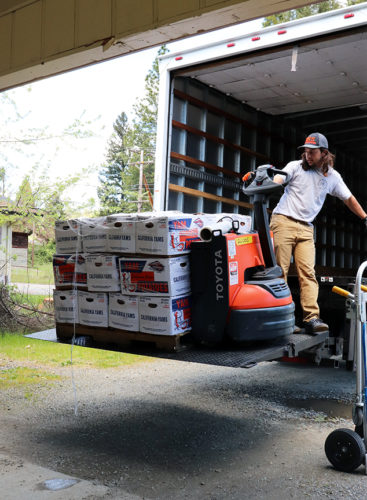
Enid from the Klamath River Community Hall provided this advice on cooking yams or potatoes in a slow cooker. (We delivered a lot of California Yams on this trip.)
This is an especially useful method during the summer when you don’t want to turn on the whole oven. Use as many potatoes as can fit in the bottom of your slow cooker. Wash and pierce them with a fork, then wrap them in foil and place them in the cooker. Cook on high for 3 hours. Take the lid off and pinch them—if they’re soft, they’re done. If they’re not, give them some more time. This method makes them taste just like they came out of the oven.
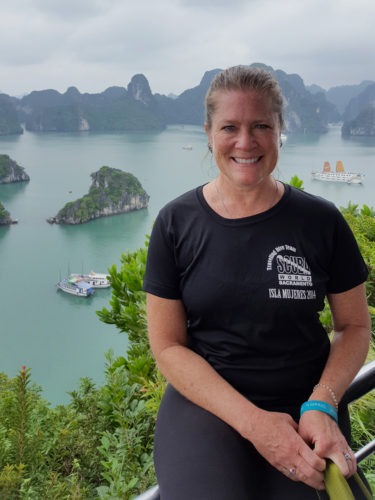
Profile in Caring: Terri Mazingo
GNS Board Member Terri Mazingo has a passion for helping people. As a Real Estate Investor and a California Licensed Real Estate Broker she’s helped countless people realize their dream of home ownership in Siskiyou County and around the state. As a board member at Great Northern Services since 2011, she has prioritized helping people in times of need and looks for creative ways to get involved.
“Terri is always there, ready to help. I’ve called upon her many times over the years, either for events or special projects, and it didn’t matter if it was outside business hours—she was always ready to lend a hand for her community,” says Bonnie Kubowitz, Executive Director of Great Northern Services, “One of the things that appealed to her about being on our board at GNS was that we serve the entire county and the majority of the work we do is helping families and communities in need.”
During Terri’s childhood, her father worked for the U.S. Forest Service and she spent her early years growing in small towns all over California, including spending a few years of her youth at the Oak Knoll Ranger Station on the Klamath River. She loved the mountain communities and returned to live in Siskiyou County in the mid-90s. As an avid traveler, she has gained a global view of community needs. “Seeing different parts of the world is eye-opening and educational,” says Terri. “And you never really get a true sense of a place until you’ve been there in person.”
In her professional life, Terri is multifaceted. She offers help and services with anything real estate related including real estate transactions, mortgage lending, property management, investment opportunities, notary services, etc. This has allowed her to interact with a broad swath of the Siskiyou County community and to see the challenges they face. She brings this insight and experience to the board helping this community service organization continue to innovate for the future. Thank you, Terri!
Success Story: Finding the right solution for a difficult situation
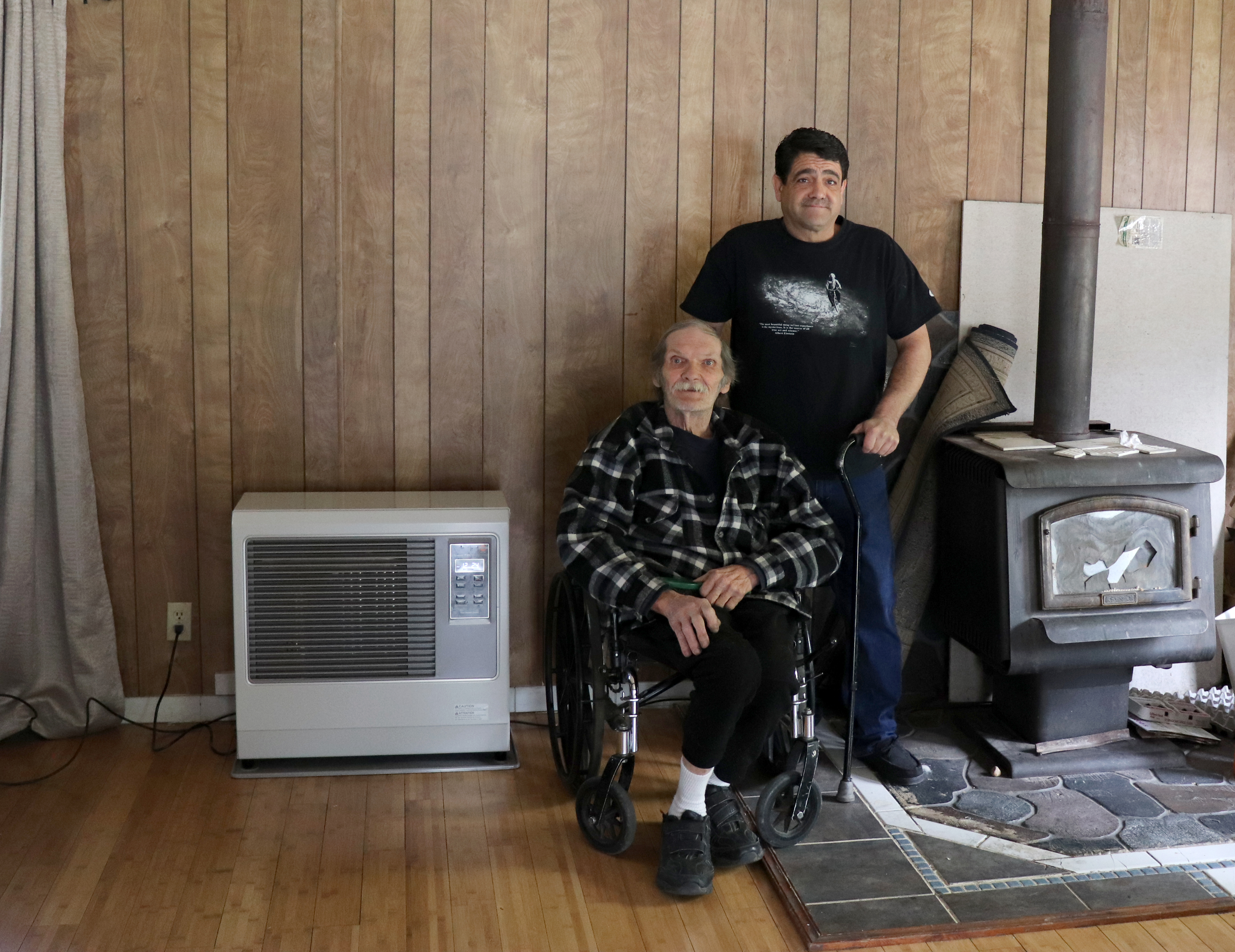
Our Weatherization Team is just finishing up a job for Jason and Mike—two wonderful clients who are enjoying a new, safe and reliable heat source and whose home has been sealed up tight so all that lovely heat isn’t escaping. “I would say the weatherization was beyond successful,” said Jason, “It made a huge difference, the house is much more comfortable, and we don’t have to bundle up all the time.”
Last year Jason and Mike needed a new heater—bad! Their main heat source was a terribly unsafe wood stove with cracked glass that was difficult to use and dangerous to their health. Our Energy Crisis Intervention Program can often help when a client’s only heat source is unsafe or unusable—but repairing their current heat source wasn’t medically advisable. The home had a propane forced air unit, but the tank had been removed. They had a kerosene tank, but the monitor had been removed and even if we put one in, the fuel tank was empty! We had already assisted them with their power bill that year, so we could not provide them with fuel. Everything about the situation was falling outside of state program guidelines.
GNS Weatherization Program Assistant Manager Zach McCrillis worked with the California Department of Community Services and Development to come up with an acceptable solution—we would put in a monitor, the Salvation Army would help them with a small fuel subsidy, and they would come up with the rest of what it would cost to fill the tank. Zach finally received a waiver from the state for the unusual circumstances and we installed a new monitor for them—just in time for winter.
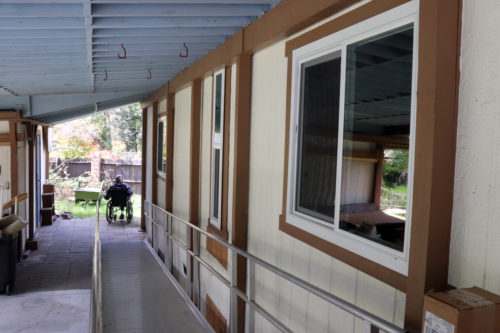
After that crisis situation was resolved, their application for weatherization had to wait until we had the correct type of funding available. This spring we were able to assess the home and our weatherization crew installed seven new windows, sealed off the abandoned forced air unit, and made other minor improvements to make the home less drafty and more energy efficient. Jason was very enthusiastic about the changes. “We were putting out way too much money in the winter to stay warm,” he said, “We just couldn’t catch up on bills. Now we won’t have to request energy assistance every year!”
Our staff works hard to find the best ways to help clients—finding the right solution, in this case, meant a little bit of negotiation, a little extra coordination, and some patience. But being able to make sure clients have safe, efficient, and affordable homes is worth the extra effort.
Learn more about our Weatherization Program
Volunteer with GNS: Be a Summer Lunch Chef
Work alongside other dedicated volunteers and GNS staff to prepare the healthy, wholesome meals that are distributed through the Summer Food Program.
Make a difference!
Shifts are available Monday through Friday, 7 am to 10 am
from June 11th to August 3rd
at the Weed Elementary School Kitchen
Activities might include cleaning, cutting, peeling, bagging, and packaging meals. No prior kitchen prep experience is necessary.
